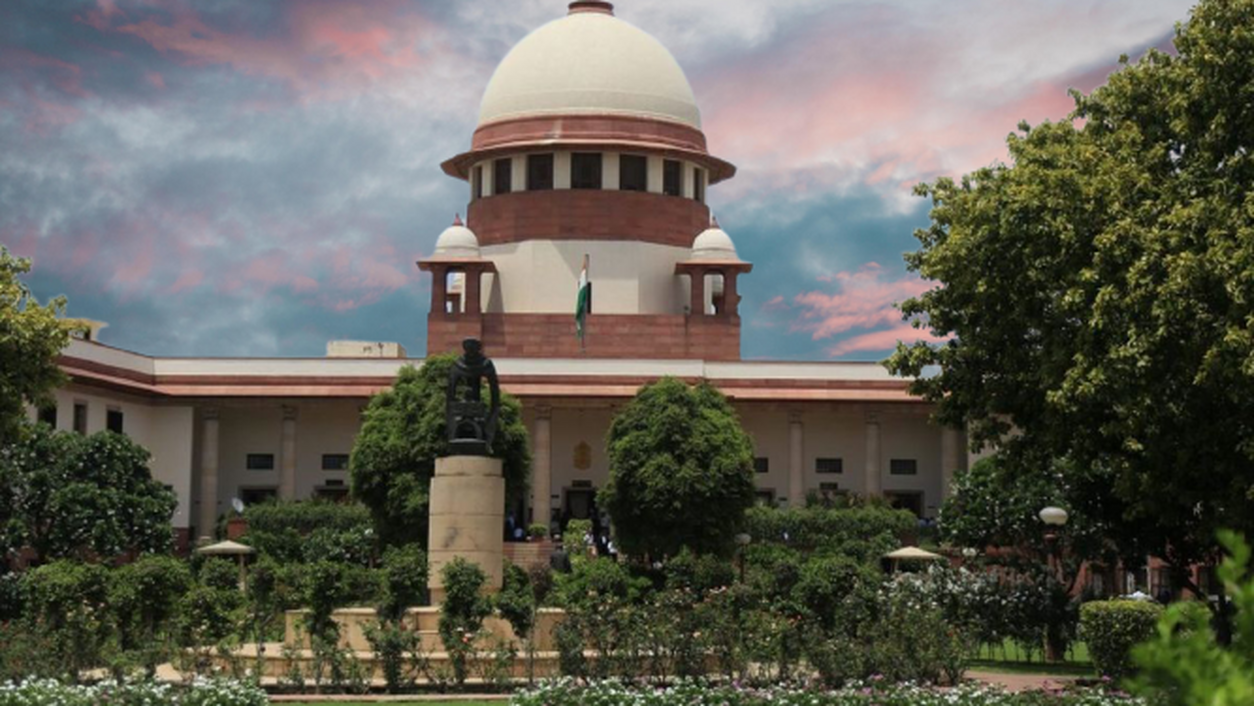Employment is terminated from the date on which resignation letter is accepted: Supreme Court upholds order confirming termination of Assistant Teacher who voluntarily tendered his resignation but withdrew it later
Justices Pamidighantam Sri Narasimha & Aravind Kumar [25-04-2024]

Read Order: SHRIRAM MANOHAR BANDE v. UKTRANTI MANDAL & ORS [SC-CIVIL APPEAL NO. 5355 OF 2024]
Tulip Kanth
New Delhi, April 26, 2024: While reaffirming that non-communication of the acceptance does not make the resignation inoperative provided there is an acceptance before the withdrawal, the Supreme Court has upheld the decision of terminating the employment of an Assistant Teacher of a grant-in-aid school. The Top Court noted that the appellant tendered his resignation from the said post but withdrew it in a few days.
Respondent No.1, an educational society, runs Respondent No.2 i.e., Vasantrao Naik High School which runs on a grant-in-aid basis. The appellant came to be appointed as an Assistant Teacher and was discharging his duties accordingly. The appellant tendered his resignation from the said post on 10.10.2017. However, he withdrew his resignation by posting said letter on 3.11.2017. The appellant claimed that on 23.11.2017, he went to the school to resume his service, which is when he was denied signing on the muster roll by the Headmaster of Respondent No.2 and on 27.11.2017, the appellant received a letter stating that he was relieved from his service.
Against his termination, the appellant approached the Tribunal constituted under Section 8 of the Maharashtra Employees of Private Schools (Conditions of Service) Regulation Act, 1977, and MEPS Act and Rules by filing an appeal under Section 9 of the MEPS. It was contended that the communication issued by the respondents relieving him from service was illegal and all connected documents therewith were fabricated and merely an afterthought. It was also contended that he had withdrawn his resignation, and as such respondents could not have prevented him from joining his duties.
The Tribunal concluded that the appellant had indeed withdrawn his resignation lawfully and the respondents with a mala fide intent had fabricated the documents i.e., the resolutions of the Committee wherein the resignation was accepted. Accordingly, the Tribunal set aside the termination of the appellant, declaring it to be unlawfully done.
When the matter reached the Nagpur Bench of the Bombay High Court, it was observed that the MEPS Act and Rules do not stipulate the resignation would come into effect only after its acceptance is communicated to an employee. The High Court set aside the findings of the Tribunal. Being aggrieved by this Order, the appellant approached the Top Court.
The appellant’s case was there was non-compliance with the provisions of the MEPS Act and Rules made thereunder which provides for proper acceptance of a resignation. The appellant had strenuously contended that resolution dated 13.10.2017 passed by the management committee was a manufactured/fabricated document.
The Division Bench of Justice Pamidighantam Sri Narasimha and Justice Aravind Kumar opined that a bare perusal of the pleadings in the written statement made it clear that the school committee upon receipt of the resignation letter had placed it before the executive committee, which in turn had resolved by resolution dated 13.10.2017 to accept the resignation and in the same resolution it was also resolved to be passed by the school committee, and accordingly the school committee had passed the resolution dated 14.10.2017. The document in question was placed before the Tribunal at the stage of evidence, which was an admitted fact. “Hence, it was wholly erroneous for the Tribunal to conclude that merely because the document and records were in possession of the management, they would have prepared or fabricated such record”, the Bench stated.
Noting that Section 7 of the MEPS Act provides for the three-fold requirements while tendering a resignation, the Bench also explained that Rule 40 of the Rules was introduced to safeguard the interests of the Management, i.e., to enable the management to make necessary arrangements to replace the existing employee.
In the present case, the employee had voluntarily tendered his resignation. Moreover, in the light of the intent and interpretation of the relevant Section 7 of MEPS and Rule 40 of the Rules, the Bench concluded that the High Court was right in holding that mere non- communication of acceptance of resignation to the employee would not render the termination invalid.
“At this juncture, it becomes necessary to point out that as per service jurisprudence, the employment is terminated from the date on which the letter of resignation is accepted by the appropriate authority. The appellant, in this case, tendered his resignation letter on 10.10.2017 and this resignation letter came be accepted on 14.10.2017, hence the date of termination of the services of the appellant for the purpose of adjudication would be 14.10.2017”, it added.
It was further observed that Section 7 of the MEPS Act and Rule 40 of the Rules do not impose any guidelines for acceptance of the resignation upon the management. As per the Bench, the contention raised by the appellant about withdrawal of resignation before communication of its acceptance did not hold water in view of the ruling in North Zone Cultural Centre and another vs. Vedpathi Dinesh Kumar [LQ/SC/2003/521] wherein it has been observed that it is not open to the public servant to withdraw his resignation after it is accepted by the appropriate authority. It was also held therein that non-communication of the acceptance does not make the resignation inoperative provided, there is, in fact, an acceptance before the withdrawal.
Thus, dismissing the appeal, the Bench affirmed the finding of the High Court.
Sign up for our weekly newsletter to stay up to date on our product, events featured blog, special offer and all of the exciting things that take place here at Legitquest.



Add a Comment